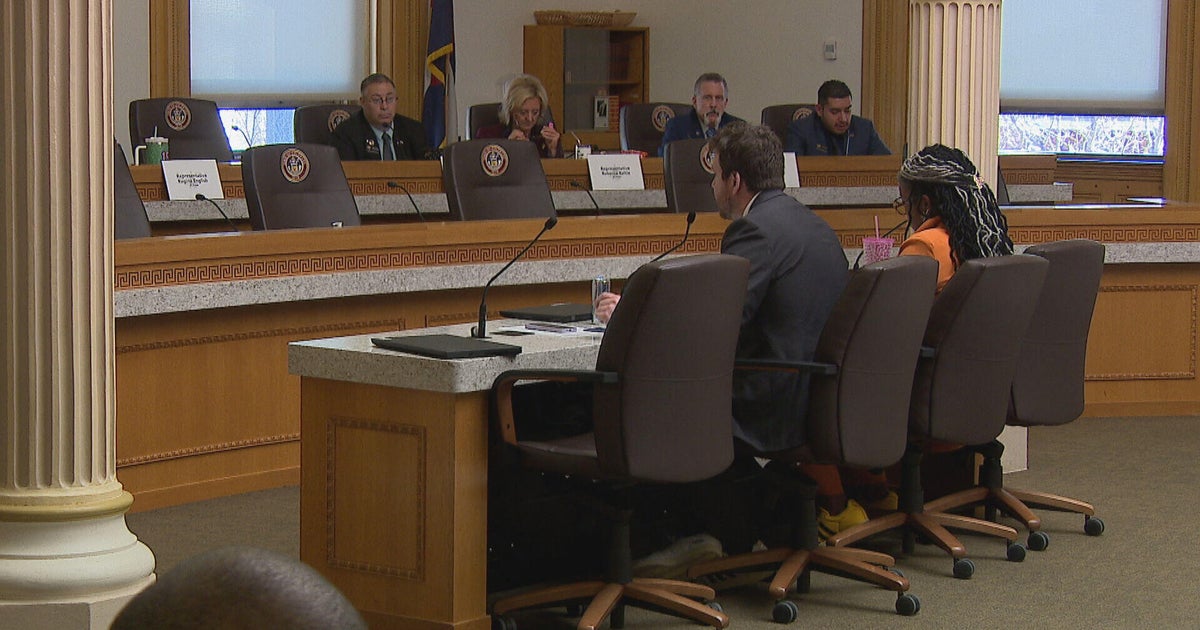On The Issues: Where Brown, Warren Stand
A look at where GOP U.S. Sen. Scott Brown and Democratic challenger Elizabeth Warren stand on the issues:
TAXES/DEFICIT
The two would follow different paths they both hope would lead away from the so-called "fiscal cliff" that awaits the U.S. at the end of the year. One thing both agree on is a reexamination of corporate deductions, loopholes and tax credits, though neither has been very specific on the topic.
Brown: Favors extending the Bush-era tax cuts for all Americans, regardless of income. Would make no changes in capital gains or dividends. Opposes the so-called Buffett Rule, which would require those earning $1 million or more a year to pay at least 30 percent of their income in taxes. Believes any tax increase while the economy remains fragile would ruin hopes for a strong recovery.
Warren: Supports extending Bush-era tax cuts for taxpayers who earn less than $250,000 a year. Supports a return to the Clinton-era tax rate of 20 percent for capital gains and treating dividends as ordinary income. Supports the so-called Buffett Rule, which would require those earning $1 million or more a year to pay at least 30 percent of their income in taxes. Accuses Brown of holding middle-income taxpayers "hostage" by refusing to allow rates to rise for wealthier individuals.
HEALTH CARE
The two are fundamentally at odds over President Barack Obama's 2010 federal health care law. One point of agreement is that both favor repeal of a 2.3 percent federal tax on the sale of medical devices — a key Massachusetts industry.
Brown: Wants to repeal the federal health care law. As a state senator, voted for the Massachusetts law that served as a blueprint for "Obamacare." But he echoes then-Gov. Mitt Romney's criticism that the federal law raises taxes and that decisions on health care should be left to the states. Says a so-called "Cadillac tax" on high-end insurance plans, set to go into effect in 2018, would drive up costs for some union workers. Accuses Warren of wanting to gut Medicare by supporting $716 billion in cuts over the next decade.
Warren: Supports Obamacare, saying it will expand health insurance to millions of Americans while also providing benefits that are not contained in the Massachusetts law, such as reducing out-of-pocket expenses for prescription drugs for seniors, and allowing young people to remain on their parents' insurance policies until age 26. Says proposed Medicare cuts target waste and abuse in the system and will not harm benefits.
ENERGY/ENVIROMENT
Brown and Warren find some common ground on climate change, sharing a belief that the earth is warming and human activities contribute to that.
Brown: Says the country should create incentives to develop renewable energy sources such as solar, wind and hydropower, but nuclear energy and domestic fossil fuels must remain an important part of the mix. Says Warren's policies would drive up gas costs. Supports the natural gas drilling technique known as hydraulic fracturing, or fracking. Sees the Keystone XL pipeline that would transport crude oil from Canada to Texas as a potential jobs creator and opposes the Cape Wind offshore wind project.
Warren: Believes U.S. policy must begin to shift from reliance on fossil fuels. Has criticized the incumbent for voting to continue tax subsidies to big oil. Cites concerns that fracking might cause environmental or health problems and opposes the Keystone XL pipeline. Supports Cape Wind.
JOBS
Both candidates have offered strategies for creating jobs and helping the struggling middle class.
Brown: Points to several votes he has taken in Congress to support jobs programs. Supports legislation to boost manufacturing and jobs training and provide more opportunities for entrepreneurs and women-owned businesses. Has labeled Warren a "jobs destroyer" and says her plan would add to the nation's deficit.
Warren: Criticizes Brown for voting against Democratic-backed jobs bills in the Senate. Has called for leveling the playing field for small businesses and community banks by simplifying regulations that favor large corporations and banks. Says sustained economic growth calls for greater investment in education and rebuilding the nation's aging infrastructure. Says her plan would more than pay for itself by putting people back to work and modernizing roads, public transit and communications.
FOREIGN POLICY
Brown and Warren agree on many basic tenets of American foreign policy, though there are differences. Both agree that all options up to and including military action should be on the table if diplomacy and sanctions fail to stop Iran's pursuit of a nuclear weapon. Both say Syrian President Bashar Assad must go.
Brown: Has criticized Warren's earlier use of the word "nuanced" to describe the preferred U.S. approach to Iran, saying it was time to bring "severe pressure" on the regime. Says the U.S. should identify moderate elements within the Syrian opposition movement and aid them with weapons. Says he's less concerned with the timing of the withdrawal of troops from Afghanistan than he is with ensuring that the enemy is defeated and that Afghan forces are prepared to take over security.
Warren: Says the Obama administration has already imposed on Iran the toughest sanctions in history and she would support making them even tougher. Cautions that providing lethal assistance in Syria could have unintended consequences and do more harm than good. Has called for withdrawing U.S. troops as "quickly as possible" from Afghanistan, perhaps even sooner than Obama's current timetable.
SOCIAL ISSUES
Brown and Warren both support abortion rights, yet that has not prevented abortion and contraception from being a major flash point between the candidates throughout the campaign.
Brown: Vows never to vote in the Senate against reproductive rights. Says he voted against Supreme Court nominee Elana Kagan, a supporter of Roe v. Wade, because she lacked judicial experience, not because of Roe v. Wade. Says he wanted to protect the religious freedom of Catholics when he voted earlier this year to support an amendment that would have let employers deny health care coverage for services they say violate their moral or religious beliefs, including birth control. Opposes gay marriage.
Warren: Warns that if Republicans gain control of the Senate they could confirm a Supreme Court justice who would tip the balance against Roe v. Wade. Criticizes Brown for votes against Kagan and for the amendment to allow employers to deny coverage for services that violate their moral or religious beliefs. Supports gay marriage.
Copyright 2012 The Associated Press.







